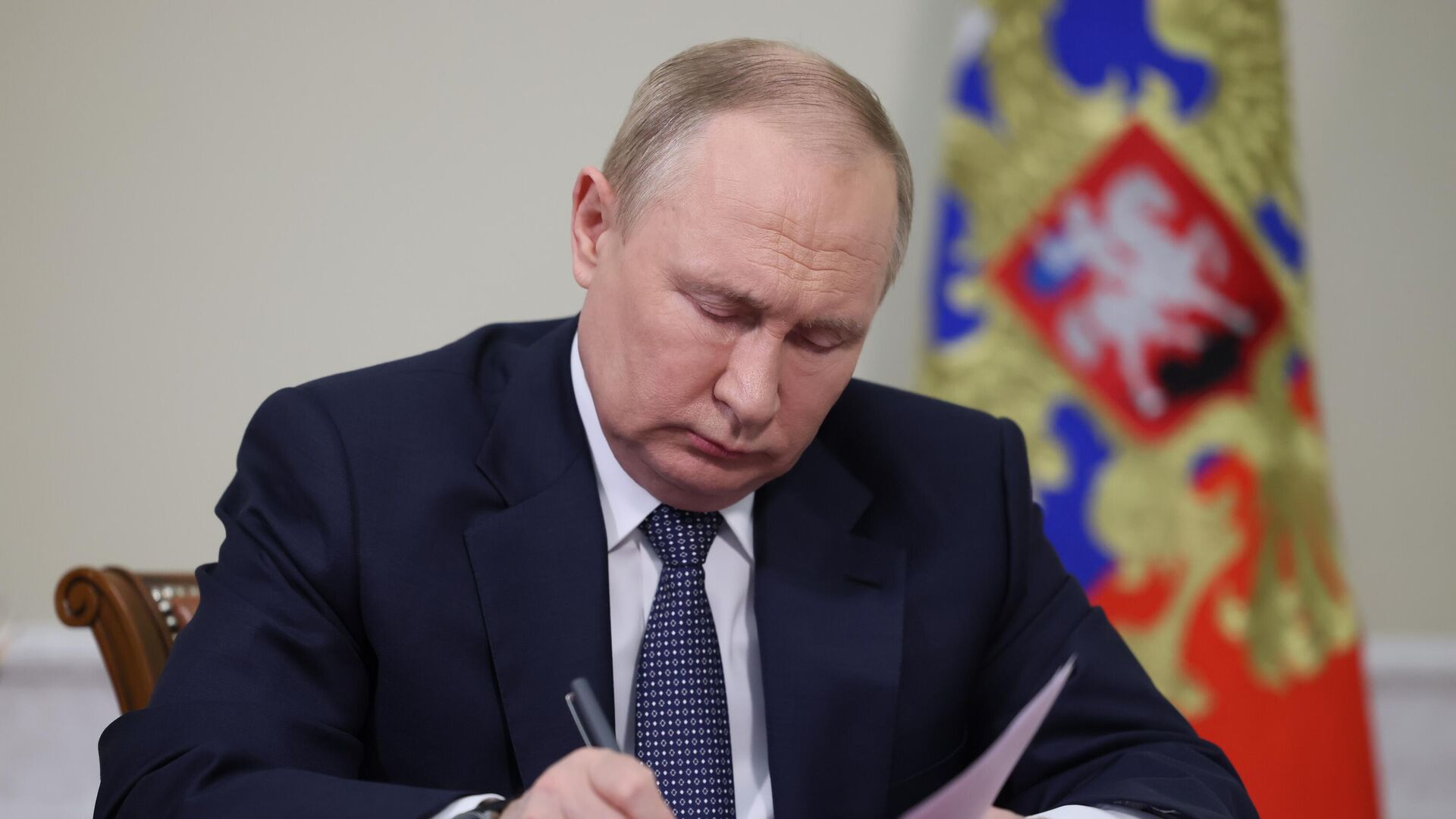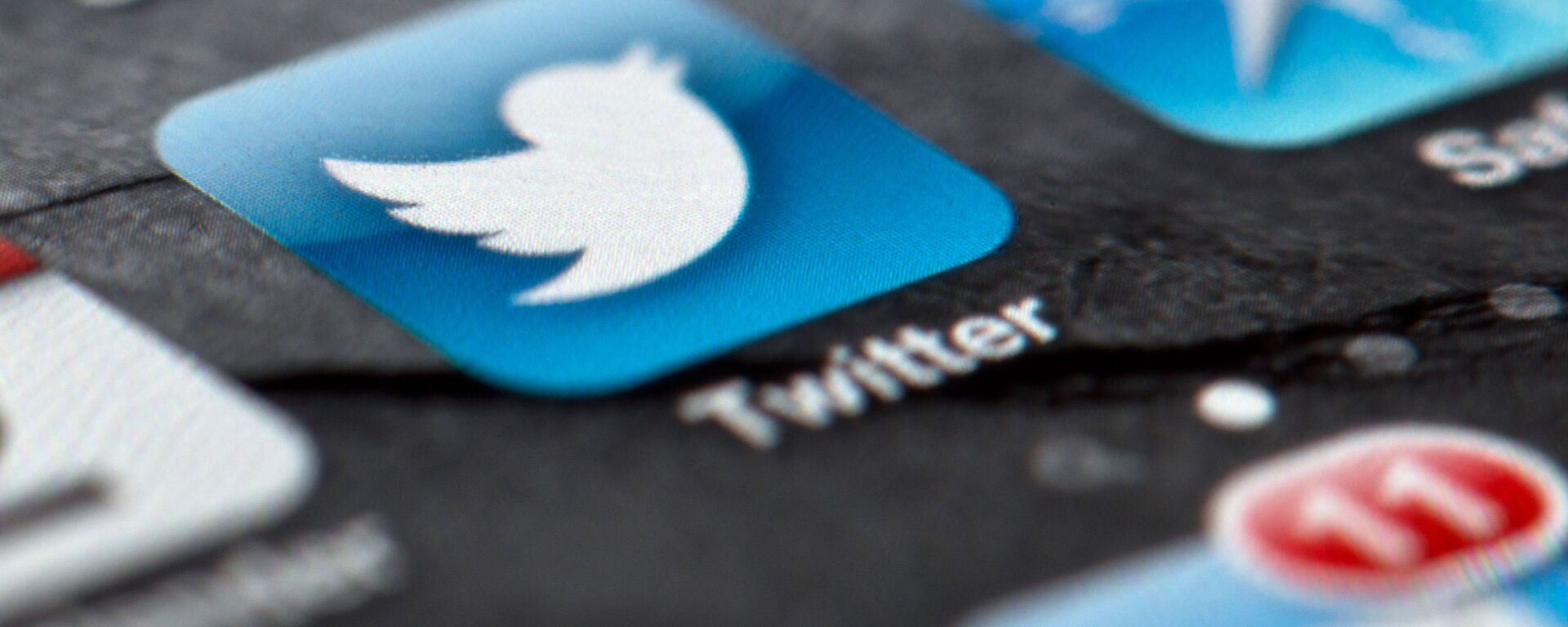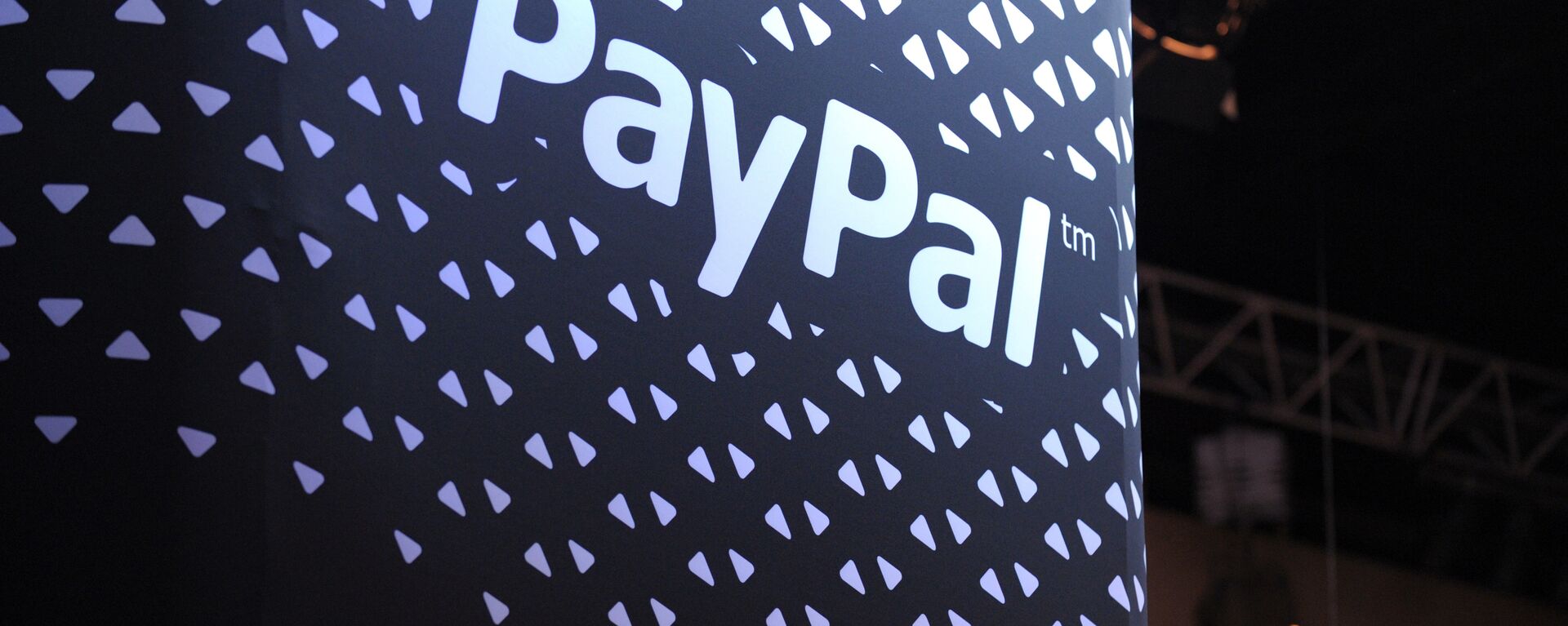https://sputnikglobe.com/20220714/putin-signs-law-on-tit-for-tat-response-over-discrimination-of-russian-media-abroad-1097320632.html
Putin Signs Law on Tit for Tat Response Over Discrimination of Russian Media Abroad
Putin Signs Law on Tit for Tat Response Over Discrimination of Russian Media Abroad
Sputnik International
The crisis in Ukraine has been accompanied by reciprocal salvos of censorship and restrictions on media, with the European Union banning Sputnik and RT in... 14.07.2022, Sputnik International
2022-07-14T16:27+0000
2022-07-14T16:27+0000
2022-07-14T16:37+0000
vladimir putin
law
media
penalties
https://cdn1.img.sputnikglobe.com/img/07e6/07/0e/1097318091_0:0:3029:1705_1920x0_80_0_0_fb468738e02fed19a96c1b781d9d0078.jpg
Russian President Vladimir Putin has signed a new federal law granting authorities the power to take tit for tat measures in response to the discrimination of Russian media abroad.The law gives the prosecutor general and his deputies the power to ban the activities of foreign media in Russia, and to temporarily suspend the licenses of Russian media for the publication of false information (for up to three months for the first violation, and up to six months for repeat offenders).The law, which was passed by the Duma, Russia’s lower house of parliament, in late June, and approved by the Federation Council (the upper house), also allows for media broadcast licenses to be terminated on the request of the prosecutor general, but restored on the decision of Roskomnadzor, Russia’s media regulator, if the offending information is removed.The law also enables authorities to strip foreign journalists of accreditation in the event that restrictions on Russian media working abroad are imposed, or “unfriendly actions” on their part are established.The package of measures also amends the 1991 Law on Mass Media, and with journalists proven to spread fake news about the Russian military, or publish materials which “express disrespect for society and the state,” promote unrest, or information in favor of sanctions against Russia or Russian businessmen, to face liability.The law was submitted to the Duma for consideration in May by a group of lawmakers headed by the chairman of the Duma’s security committee, Vasily Piskarev, of the ruling United Russia party.Western countries have instituted a series of restrictions against Russian media over the past four months amid the escalation of the security crisis in Ukraine, with some countries, like Canada, instituting sanctions targeting Russian media organizations, while other jurisdictions, like the European Union, banning Russian foreign language media from the airwaves and blocked the websites of outlets including Sputnik and RT (which now require a VPN to access). Others, like the United States, have taken a stealthier approach, taking unspecified "efforts to reduce traffic" of Russian media. US-based media giants Facebook, Twitter and Google have also targeted Russian media , delisting stories from search results, removing posts for purported 'disinformation or misinformation', etc.
https://sputnikglobe.com/20220519/twitter-introduces-policy-to-prevent-spreading-of-misinformation-during-crises-1095641025.html
https://sputnikglobe.com/20220503/i-thought-id-never-see-it-paypal-seizes-funds-of-independent-media-without-offering-explanation-1095244405.html
Sputnik International
feedback@sputniknews.com
+74956456601
MIA „Rossiya Segodnya“
2022
Sputnik International
feedback@sputniknews.com
+74956456601
MIA „Rossiya Segodnya“
News
en_EN
Sputnik International
feedback@sputniknews.com
+74956456601
MIA „Rossiya Segodnya“
Sputnik International
feedback@sputniknews.com
+74956456601
MIA „Rossiya Segodnya“
vladimir putin, law, media, penalties
vladimir putin, law, media, penalties
Putin Signs Law on Tit for Tat Response Over Discrimination of Russian Media Abroad
16:27 GMT 14.07.2022 (Updated: 16:37 GMT 14.07.2022) The crisis in Ukraine has been accompanied by reciprocal salvos of censorship and restrictions on media, with the European Union banning Sputnik and RT in early March, and Russian regulators restricting access to some Western outlets, including the US State Department-funded Radio Free Europe/Radio Liberty and the privately owned Euronews.
Russian President Vladimir Putin has signed a new federal
law granting authorities the power to take tit for tat measures in response to the discrimination of Russian media abroad.
The law gives the prosecutor general and his deputies the power to ban the activities of foreign media in Russia, and to temporarily suspend the licenses of Russian media for the publication of false information (for up to three months for the first violation, and up to six months for repeat offenders).
The law, which was passed by the Duma, Russia’s lower house of parliament, in late June, and approved by the Federation Council (the upper house), also allows for media broadcast licenses to be terminated on the request of the prosecutor general, but restored on the decision of Roskomnadzor, Russia’s media regulator, if the offending information is removed.
The law also enables authorities to strip foreign journalists of accreditation in the event that restrictions on Russian media working abroad are imposed, or “unfriendly actions” on their part are established.
The package of measures also amends the 1991 Law on Mass Media, and with journalists proven to spread fake news about the Russian military, or publish materials which “express disrespect for society and the state,” promote unrest, or information in favor of sanctions against Russia or Russian businessmen, to face liability.
The law was submitted to the Duma for consideration in May by a group of lawmakers headed by the chairman of the Duma’s security committee, Vasily Piskarev, of the ruling United Russia party.
Western countries have instituted a series of restrictions against Russian media over the past four months amid the escalation of the security crisis in Ukraine, with some countries, like Canada, instituting
sanctions targeting Russian media organizations, while other jurisdictions, like the European Union, banning Russian foreign language media from the airwaves and
blocked the websites of outlets including Sputnik and RT (which now require a VPN to access). Others, like the United States, have taken a stealthier approach, taking unspecified
"efforts to reduce traffic" of Russian media. US-based media giants Facebook, Twitter and Google have also targeted Russian media , delisting stories from search results, removing posts for purported 'disinformation or misinformation', etc.



